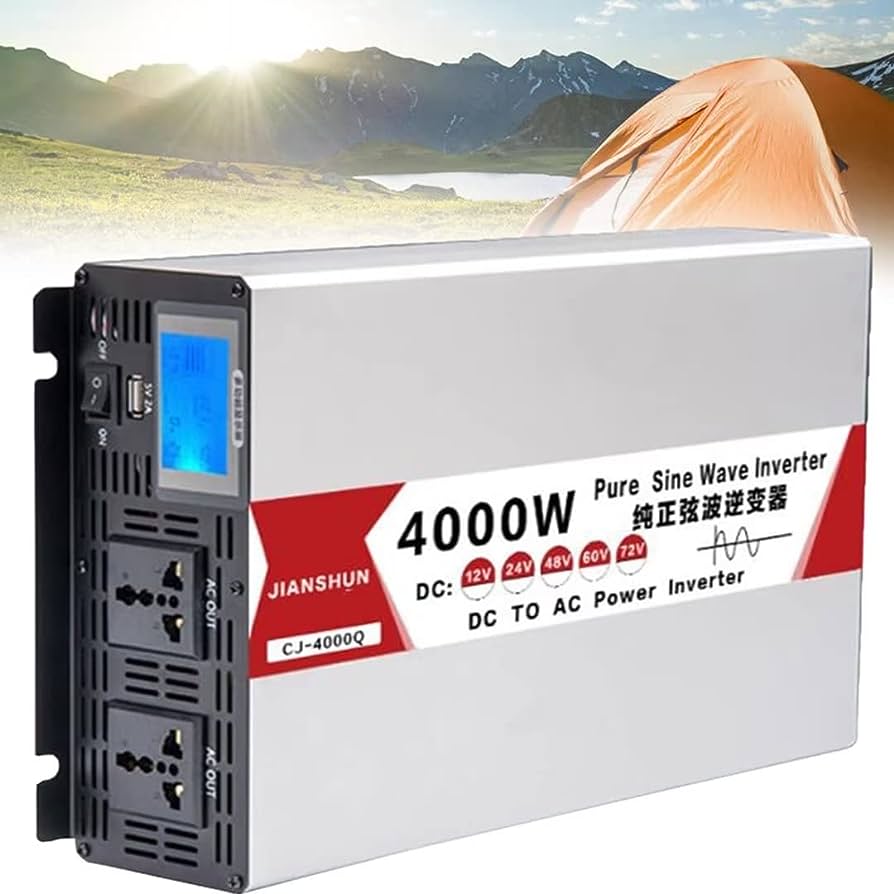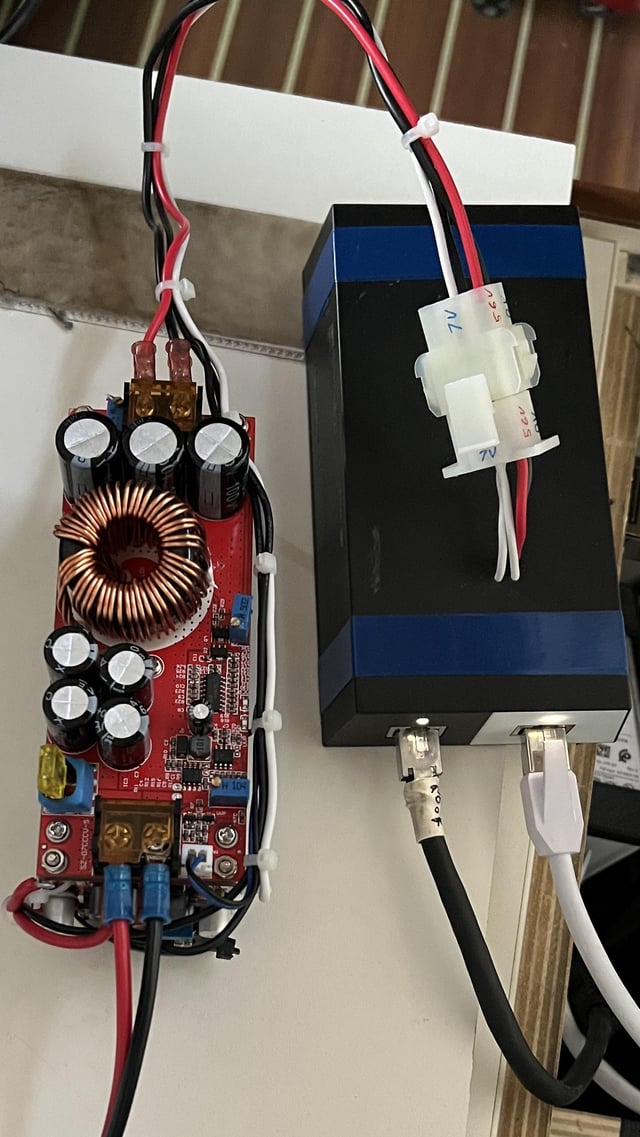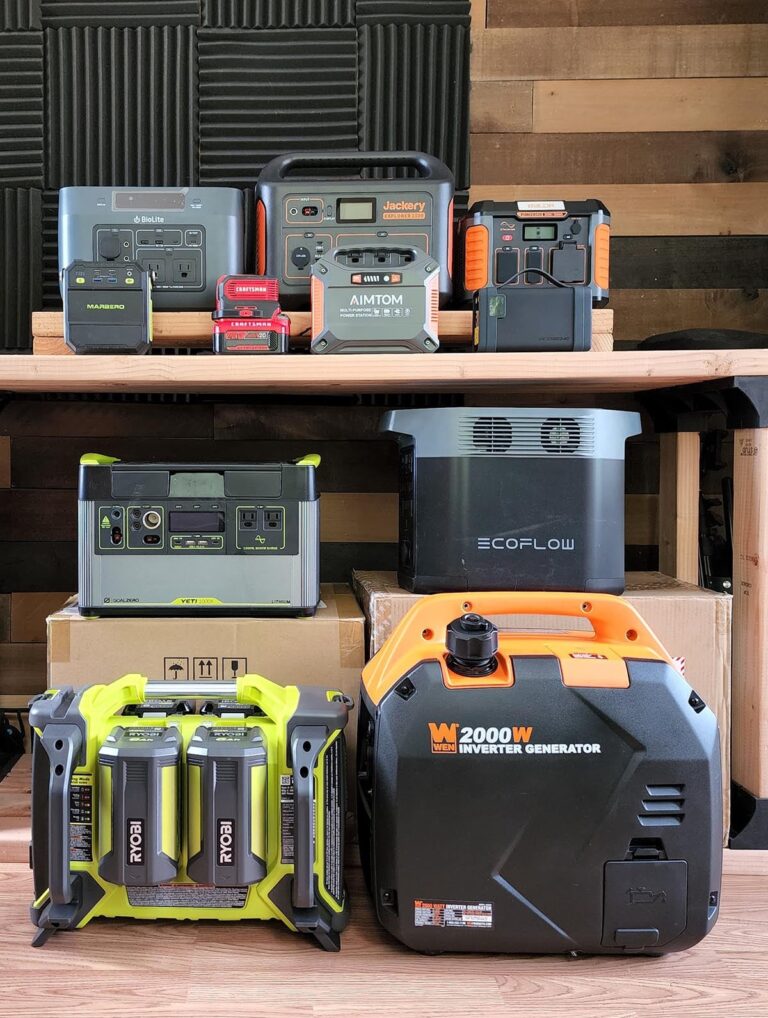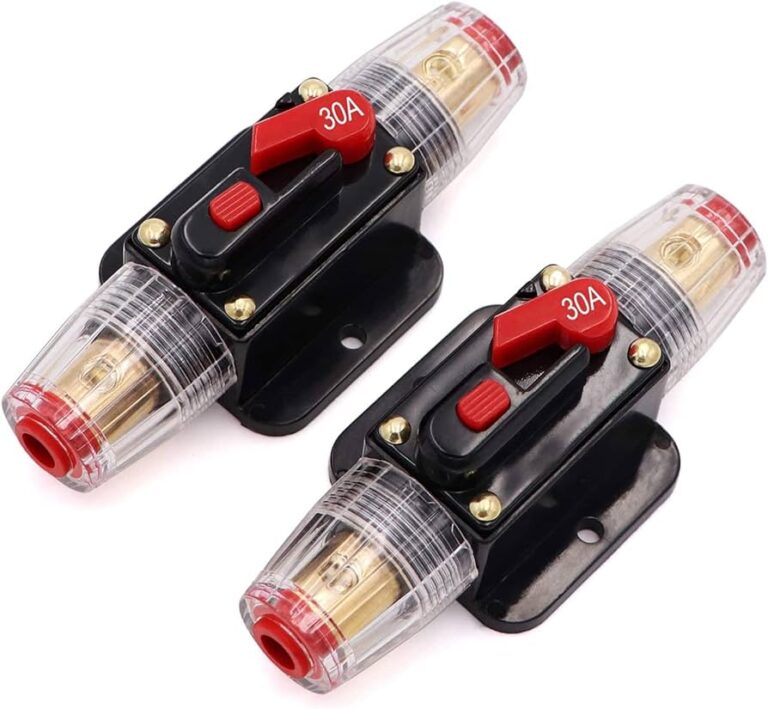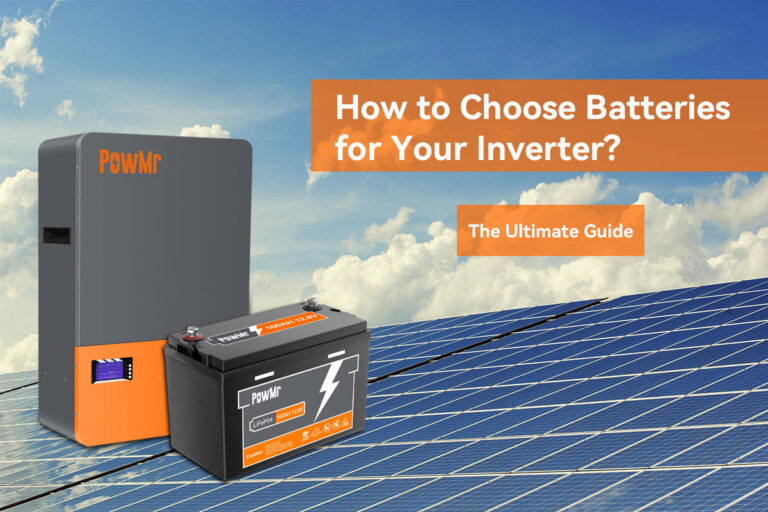220V Solar Inverter: Efficient Power Conversion
A 220V solar inverter is a device that converts the DC power generated by solar panels into AC power for use in household appliances. It allows you to harness the energy from the sun and use it to power your electrical devices.
With a variety of options available in the market, you can find a suitable 220V solar inverter for your specific energy needs and budget. These inverters come with features such as MPPT charge controllers, pure sine wave output, and hybrid functionality.
By choosing the right 220V solar inverter, you can save on energy costs and reduce your carbon footprint.

Credit: www.aliexpress.com
Understanding The Basics Of 220V Solar Inverters
Understanding the basics of 220V solar inverters is crucial for harnessing solar energy efficiently. With a maximum capacity of 220V, these inverters convert the DC power generated by solar panels into AC power that can be used to power household appliances and devices.
A solar inverter is a crucial component of a solar power system. It is responsible for converting the direct current (DC) electricity generated by solar panels into alternating current (AC) electricity, which is compatible with the majority of household appliances and can be used to power residential and commercial properties.
To help you grasp the fundamentals of 220V solar inverters, let’s explore the following topics:
What Is A Solar Inverter?
- A solar inverter is an electronic device employed in solar power systems to convert DC electricity into AC electricity.
- It enables the utilization of solar power generated by photovoltaic (PV) panels to power devices, appliances, and buildings.
- Solar inverters ensure that the electricity produced by solar panels is usable for various applications, giving the entire solar power system its functionality.
How Does A Solar Inverter Work?
- Solar inverters function by using a complex system of electronics to convert the DC electricity produced by solar panels into AC electricity.
- The process involves converting the DC electricity from the solar panels into AC electricity resembling the waveform of the electricity from the power grid.
- Solar inverters also enable the synchronization of the AC electricity produced by solar panels with the electricity supplied by the utility grid when necessary.
- This synchronization allows excess electricity from the solar power system to be fed back into the grid, resulting in potential energy cost savings.
Importance Of Efficient Power Conversion In 220V Solar Inverters
- Efficient power conversion is crucial in 220V solar inverters to maximize the energy yield and optimize the performance of solar power systems.
- High-quality solar inverters ensure minimal energy losses during the conversion from DC to AC electricity.
- Efficient power conversion also contributes to the generation of stable and reliable AC electricity, which is vital for powering sensitive electronic devices and appliances.
- Advanced features like maximum power point tracking (MPPT) technology in 220V solar inverters allow for optimal energy capture from solar panels, maximizing the overall efficiency of the system.
Understanding the basics of 220V solar inverters is essential in evaluating and selecting the right solar power system for your needs. Whether you are considering residential or commercial applications, the proper functioning and efficiency of your chosen solar inverter play a crucial role in harnessing clean, renewable solar energy.
Key Features To Consider In A 220V Solar Inverter
When considering a 220V solar inverter, it’s important to look for key features such as high voltage input capabilities, efficient MPPT charge controllers, reliable pure sine wave output, and compatibility with both lead-acid and lithium batteries.
A 220V solar inverter is an essential component of any solar power system. It converts the DC (direct current) energy generated by solar panels into AC (alternating current) electricity that can be used to power appliances and devices in your home or business.
When choosing a 220V solar inverter, there are several key features to consider:
Power Output And Efficiency:
- Power output: Look for a solar inverter with a power output that matches your energy needs. It should be able to handle the maximum power generated by your solar panels. Consider factors such as the size of your solar array and the peak power output of each panel.
- Efficiency: Efficiency is an important factor to consider in a solar inverter. It refers to how effectively the inverter can convert the DC energy into AC electricity. Higher efficiency means less energy loss during the conversion process, which translates into greater overall energy savings.
Input Voltage Range And Compatibility:
- Input voltage range: Make sure the solar inverter you choose has an input voltage range that is compatible with the voltage output of your solar panels. This ensures that the inverter can effectively convert the energy generated by the panels.
- Compatibility: Check if the solar inverter is compatible with different types of solar panel technologies, such as monocrystalline or polycrystalline. This ensures that you have the flexibility to choose the panels that suit your needs.
Battery Charging Capabilities:
- Battery compatibility: If you plan to include battery storage in your solar power system, consider a solar inverter that is compatible with different types and sizes of batteries. This allows for efficient charging and discharging of the batteries.
- Charging modes: Look for a solar inverter that offers different charging modes, such as bulk, absorption, and float charging. These modes optimize the charging process and help extend the lifespan of the batteries.
Monitoring And Control Features:
- Monitoring: Consider a solar inverter that provides real-time monitoring of your solar power system. This allows you to track the performance of your panels and monitor the energy generated.
- Control features: Look for a solar inverter that offers remote control and advanced settings options. These features enable you to customize the operation of the inverter and integrate it with other smart home or energy management systems.
When choosing a 220V solar inverter, consider the power output and efficiency, input voltage range and compatibility, battery charging capabilities, and monitoring and control features. These key features will ensure that your solar power system operates efficiently and effectively, maximizing the benefits of renewable energy.
Advantages Of Using A 220V Solar Inverter
The advantages of using a 220V solar inverter include efficient conversion of solar energy into usable electricity, cost savings on utility bills, and reduced carbon footprint. With its ability to convert DC power from solar panels into AC power for household appliances, a 220V solar inverter offers a sustainable and eco-friendly solution for powering your home.
Using a 220V solar inverter comes with numerous benefits, making it a smart choice for those looking to reduce their electricity bills, lower their carbon footprint, have backup power during blackouts, and achieve grid independence and self-sufficiency. Let’s explore these advantages in more detail:
Reduction in electricity bills:
- Installing a 220V solar inverter allows you to generate your own electricity from the sun, which significantly reduces your reliance on the traditional power grid.
- By harnessing solar energy, you can power your appliances and devices without relying on energy from fossil fuels, resulting in substantial cost savings on your electricity bills.
Lower carbon footprint:
- 220V solar inverters utilize clean and renewable solar energy, which produces zero emissions during its generation.
- By switching to solar power, you contribute to reducing greenhouse gas emissions and combating climate change.
- Using a 220V solar inverter helps you minimize your carbon footprint and promote a greener and more sustainable future.
Backup power during blackouts:
- Power outages can be inconvenient and disruptive, but with a 220V solar inverter, you can have backup power when the grid goes down.
- During a blackout, your solar panels continue to generate electricity, which is stored in batteries connected to the solar inverter. This stored energy can be used to power essential appliances and devices until the grid power is restored.
Grid independence and self-sufficiency:
- With a 220V solar inverter, you become less reliant on the electrical grid, giving you increased independence and self-sufficiency.
- By generating your own electricity, you are no longer as vulnerable to electricity price fluctuations and potential grid failures.
- You have more control over your energy source, ensuring a continuous power supply even in remote areas or during emergencies.
A 220V solar inverter offers several advantages, including reduced electricity bills, lower carbon footprint, backup power during blackouts, and grid independence. By harnessing the power of the sun, you can save money, protect the environment, and have a reliable source of electricity when you need it most.
Invest in a 220V solar inverter and enjoy the benefits of sustainable and efficient energy usage.
Selecting The Right 220V Solar Inverter For Your Needs
Finding the perfect 220V solar inverter that suits your needs is crucial. Consider factors like power output, efficiency, and compatibility to make the right choice for uninterrupted solar power.
Assessing Your Power Requirements:
- Determine the total power consumption of your electrical appliances and devices that you want to run on solar power.
- Consider both the continuous power and the surge power (if any) required by your appliances.
- Note down the voltage and wattage specifications of each device to calculate the total power needed.
- Assess your daily energy usage to determine the size and capacity of the inverter you need.
- Take into account any future expansion plans or additional power requirements.
Evaluating System Compatibility:
- Check if the 220V solar inverter is compatible with your solar panel system.
- Ensure that the inverter can handle the maximum voltage and current output of your solar panels.
- Consider the compatibility of the inverter with the battery bank, if you have one.
- Evaluate if the inverter supports the type of batteries you have (e.g., lead-acid or lithium-ion).
- Determine if the inverter is compatible with any additional accessories or monitoring systems you may have.
Considering Budget And Long-Term Investment:
- Set a realistic budget for your 220V solar inverter purchase, keeping in mind the features and specifications you require.
- Compare the prices of different brands and models to find the best value for money.
- Consider the long-term durability and reliability of the inverter to ensure it will provide a good return on investment.
- Look for inverters with warranty coverage and after-sales support to safeguard your investment.
- Factor in the potential energy savings and benefits of using solar power in the long run.
Exploring Reputable Brands And Customer Reviews:
- Research reputable brands known for their quality and reliability in the solar industry.
- Read customer reviews and ratings to gauge the performance and user satisfaction of different 220V solar inverters.
- Consider the feedback and experiences of other users with similar power requirements.
- Look for certifications or endorsements from industry organizations or professionals.
- Take into account any specific features or functionalities that are important to you based on customer feedback.
Installation And Maintenance Tips For 220V Solar Inverters
For effective installation and maintenance of 220V solar inverters, it is important to follow a few tips. These tips include proper grounding, regular cleaning of panels, monitoring battery levels, and ensuring proper ventilation for efficient performance.
Optimal Placement And Positioning Considerations:
- When installing a 220V solar inverter, it is important to consider the optimal placement and positioning of the device. Here are some key considerations:
- Choose a location that receives ample sunlight throughout the day to maximize the efficiency of the solar panels.
- Ensure that the area is well-ventilated to prevent overheating of the inverter.
- Position the inverter near the solar panels to minimize the length of DC wiring, reducing energy losses.
- Avoid installing the inverter in areas prone to flooding or extreme weather conditions to prevent damage.
Proper Grounding And Electrical Connections:
- Proper grounding and electrical connections are crucial for the safe and efficient operation of a 220V solar inverter. Follow these tips:
- Always use a qualified electrician to handle the installation and ensure compliance with local electrical codes.
- Connect the inverter’s grounding terminal to an appropriate ground rod or grounding electrode system.
- Use properly sized wiring and connectors to ensure a secure and reliable electrical connection.
- Regularly inspect the connections for signs of wear or corrosion and address any issues promptly.
Regular Cleaning And Inspection Routines:
- Regular cleaning and inspection of a 220V solar inverter are essential to maintain its performance and longevity. Consider the following:
- Clean the inverter’s exterior periodically using a soft cloth and mild detergent to remove dust and debris.
- Inspect the vents and fans to ensure that they are free from obstruction and functioning properly.
- Check the wiring and connectors for any signs of damage or loose connections.
- Monitor the inverter’s performance regularly using its built-in monitoring system or external monitoring tools.
Troubleshooting Common Issues:
- Despite regular maintenance, some common issues may arise with a 220V solar inverter. Here are some troubleshooting tips:
- Check the inverter’s display for error codes or warning messages and consult the user manual for guidance.
- Verify that the DC and AC connections are secure and properly connected.
- Ensure that the solar panels are receiving sufficient sunlight and are not shaded.
- Reset the inverter by disconnecting it from the power source and then reconnecting it after a few minutes.
- If the issue persists, contact a qualified technician or the manufacturer for further assistance.
Enhancing The Efficiency Of Your 220V Solar Inverter
Enhance the efficiency of your 220V solar inverter with advanced technology and optimization techniques. Maximize the power output and minimize energy waste for a more sustainable and cost-effective solar energy system.
Maximizing solar panel efficiency:
- Regularly clean and maintain your solar panels to ensure optimal performance.
- Adjust the angle and direction of your solar panels to capture the maximum amount of sunlight.
- Invest in high-quality solar panels with high conversion rates.
Optimizing battery usage and lifespan:
- Use deep cycle batteries specifically designed for solar applications.
- Avoid overcharging or overdischarging your batteries to extend their lifespan.
- Implement a battery management system to ensure efficient charging and discharging.
Implementing energy-saving practices:
- Install energy-efficient appliances and LED lighting to reduce overall power consumption.
- Use smart home automation systems to monitor and control energy usage.
- Implement time-of-use plans to take advantage of off-peak electricity rates.
Upgrading firmware and software:
- Regularly update the firmware and software of your solar inverter to benefit from performance improvements and bug fixes.
- Consult the manufacturer’s guidelines for firmware and software updates specific to your model.
- Consider hiring a professional to assist with the upgrade process if you are unfamiliar with the technical aspects.
By implementing these practices, you can enhance the efficiency of your 220V solar inverter, maximizing power generation and optimizing energy usage. Prioritize regular maintenance, utilize energy-saving strategies, and stay up to date with the latest firmware and software updates to ensure your solar system operates at its peak performance.
Frequently Asked Questions For 220V Solar Inverter
Can You Run 220 Off Solar?
Yes, you can run 220V off solar. Solar systems typically generate DC (direct current) electricity, but most household appliances and electronics operate on AC (alternating current) power. To convert the DC electricity produced by the solar panels into AC power suitable for your appliances, you will need a solar inverter.
A solar inverter converts the DC power from the solar panels into AC power that can be used in your home. There are various types of solar inverters available, including ones that can handle 220V outputs. These inverters allow you to power your 220V appliances directly from solar energy, reducing your reliance on the electrical grid and potentially saving you money on your electricity bills.
It’s important to consult with a professional solar installer to determine the right solar inverter for your specific needs.
Can I Use 2 Inverters To Make 220V?
Using 2 inverters to make 220V is not recommended. Inverters are designed to convert DC power into AC power, but using multiple inverters in this way can result in synchronization issues and potential damage to the inverters. It is more reliable and practical to use a single inverter specifically designed for the desired voltage output, such as a 220V inverter.
This ensures proper voltage regulation and avoids potential risks.
What Is 220 Inverter?
A 220 inverter is an electrical device that converts power from a 12V or 24V DC battery to 220V AC power. It is commonly used in applications where 220V AC power is needed, such as in vehicles, boats, and off-grid solar systems.
The inverter has a built-in circuit that ensures a smooth and consistent output of 220V AC power, allowing users to run appliances and devices that require this voltage. It is designed to be compact and efficient, providing reliable power conversion without taking up much space.
With a 220 inverter, users can easily power their devices and appliances, making it a versatile and essential tool in various settings.
How Inverter Converts 12V To 220V?
An inverter converts 12V DC (direct current) to 220V AC (alternating current) by using electronic circuitry. It takes the 12V DC power from a battery or a DC power source and converts it to the 220V AC power that is commonly used in households and businesses.
The process involves several stages. First, the 12V DC power is passed through a transformer to increase its voltage. Then, the higher voltage is converted to AC power using electronic switches called MOSFETs or IGBTs. These switches rapidly control the flow of electricity, creating an oscillating current that alternates at 50 or 60 cycles per second.
Finally, the AC power is filtered to smoothen out any fluctuations or noise, resulting in a stable 220V AC output. By converting 12V DC to 220V AC, inverters allow devices that typically run on AC power to be used with DC power sources such as batteries, solar panels, or car alternators.
This makes them useful in applications such as solar power systems, car inverters, and backup power systems.
Conclusion
To conclude, a 220V solar inverter is an essential component for any solar power system. It allows you to convert the DC power generated from solar panels into usable AC power for your home or business. A reliable and efficient solar inverter is crucial for maximizing the benefits of your solar energy system.
With the advancement in technology, there are various high-quality 220V solar inverters available in the market. These inverters come with advanced features like MPPT charge controllers, pure sine wave output, and split-phase functionality. They are designed to provide a stable and reliable power supply, ensuring the smooth operation of your electrical appliances.
Investing in a 220V solar inverter not only helps you save on your electricity bills but also contributes to a greener environment by reducing your carbon footprint. So, if you are considering installing a solar power system, make sure to choose the right 220V solar inverter that suits your specific energy needs.
Embrace solar energy and enjoy the benefits of clean, renewable power with a 220V solar inverter. Start harnessing the sun’s energy today!

